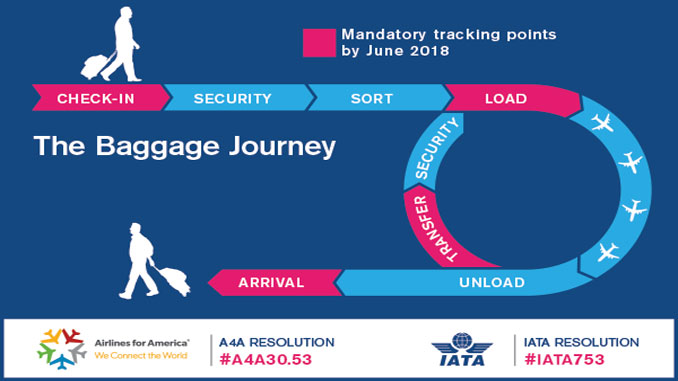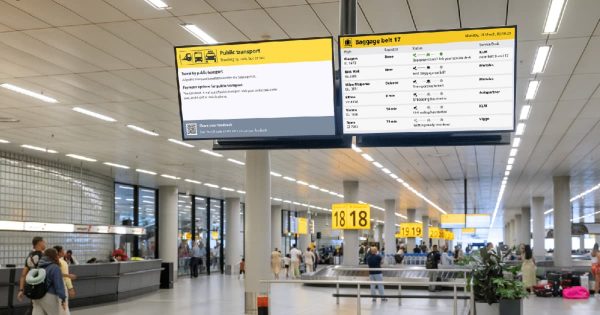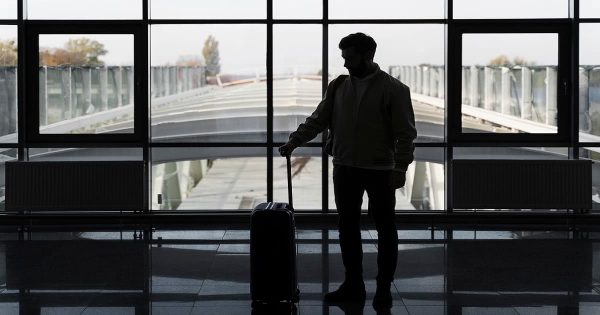The International Air Transport Association (IATA) and Airlines for America (A4A), have launched a year-long global campaign related to baggage tracking with the goal of reducing mishandled bags in addition to increasing efficiency in baggage operations.
IATA is a trade association for the world’s airlines. The 275 members, primarily major carriers, account for carrying approximately 83% of total air traffic. IATA supports airline activity and helps formulate industry policy and standards.
A4A, formerly known as Air Transport Association of America, is an American trade association and lobbying group based in Washington, D.C. that represents the largest U.S. airlines.
Annually, more than 4 billion bags are carried by airlines globally. Less than 0.43 percent do not arrive with their owners. The industry is determined to do even better and has agreed to Resolution 753 (R753). By June 2018, airlines have committed to being able to track a bag when it is accepted at the airport, loaded onto the aircraft, transferred to the arrival system or put into the transfer system for carriage by another airline. Airlines should also be able to share this tracking information with interline carriers as needed.
Andrew Price, IATA’s Global Head of Baggage:
“Arriving without a bag is a very frustrating experience for our customers. Over the last decade we have reduced mishandled baggage by 54% with improved processes. The next step is to realize the full benefits of baggage tracking to further improve performance. In the rare cases when a bag does not arrive with the passenger there will be much more information available to facilitate a quicker reunion. And the benefits don’t stop there. Tracking bags will, enable proactive reporting, speed up aircraft readiness for departure, facilitate the automation of baggage processes and also reduce fraud.”
Patty Edwards, Managing Director of Passenger Services at A4A:
“Implementation of baggage tracking is a collaborative effort between airlines and airports to improve the passenger experience. Airlines and airports are working together to ensure the infrastructure is available to provide this enhanced service to our customers.”
The baggage tracking campaign will help airlines prepare for the R753 June 2018 implementation deadline with a series of initiatives tailored to various stakeholders. These include regional workshops for key aviation entities and an awareness campaign for passengers. An implementation guide developed by industry partners is also available. In addition, IATA is offering member airlines a readiness certificate to recognize them when they develop their implementation plan for R753.
N.B. Image credit: iata.aero







